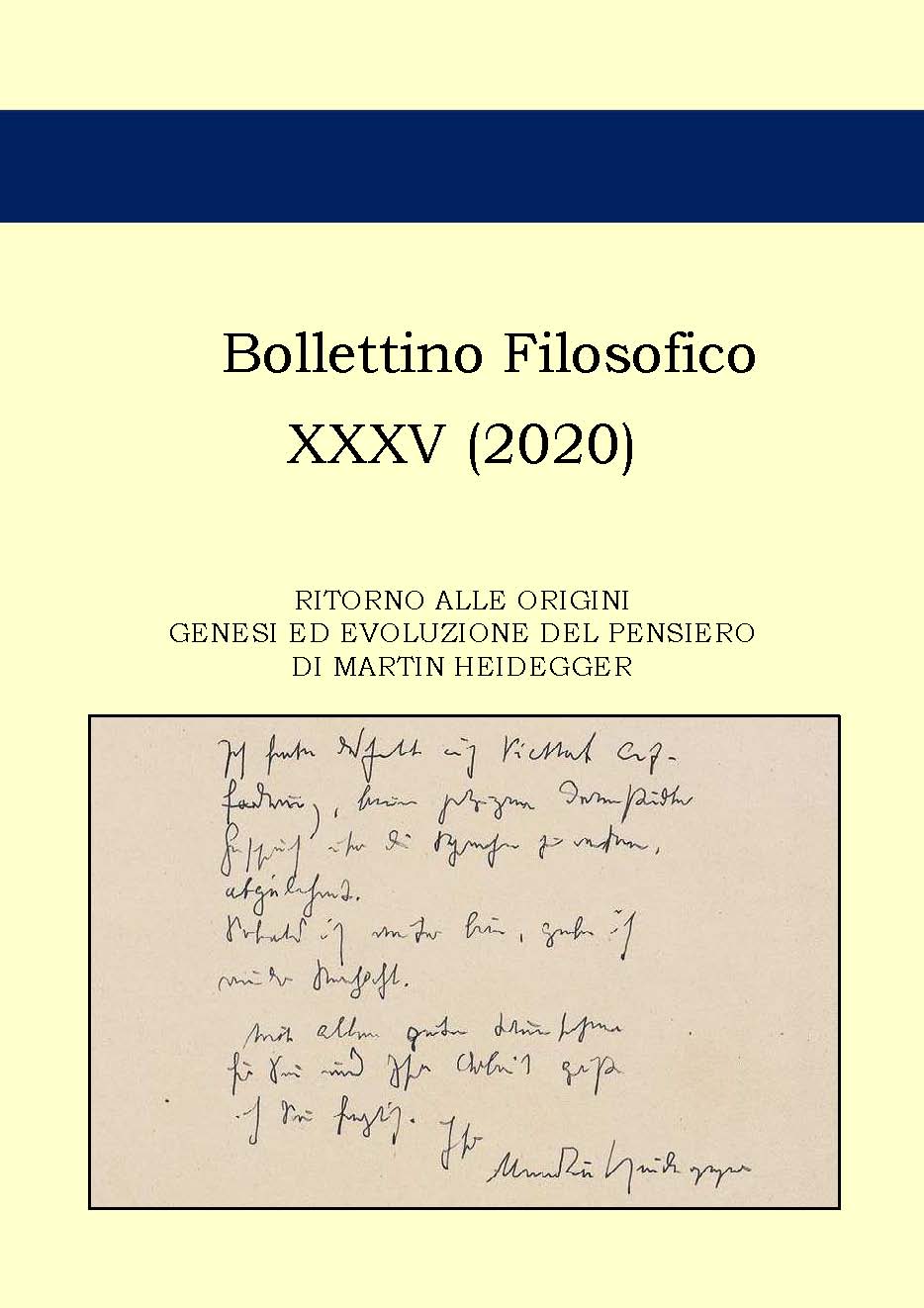Die hermeneutische Wendung im Frühwerk Martin Heideggers
Abstract
The hermeneutical turn is a methodological innovation in Heidegger’s thought. This innovation is pursued in Heidegger’s lectures from 1919 on; it reaches its peak in § 32 of “Being and Time”. The main point of the hermeneutical turn consists in a twofold critique: 1) a critique of the distanced intuition of essence (“Wesensschau”) and various kinds of objectifying attitudes prevailing in philosophy in a way not sufficiently reflected upon. It is here where hermeneutics should have its proper domain as it consists in man’s self-interpretation and in the interpretation of their situation. 2) a critique of traditional hermeneutics’ focus on texts which underexposes the point that human life itself is primordially hermeneutical. The result is an original though to date not yet sufficiently received contribution to phenomenology regarding the question of how to find the way “to the things themselves”. In this respect, Heidegger can be considered as a pioneer of “epistemological explicationism” (Hermann Schmitz).
Keywords: Explication, Fore-Conception, Hermeneutics, Interpretation, Situations
Downloads
Bollettino Filosofico pubblica in internet, ad accesso aperto, con licenza:
|
|
CCPL Creative Commons Attribution |
L'autore conserva il copyright sul suo contributo, consentendo tuttavia a chiunque "di riprodurre, distribuire, comunicare al pubblico, esporre in pubblico, rappresentare, eseguire e recitare l'opera", purché siano correttamente citati l'autore e il titolo della rivista. L’autore, al momento della proposta di pubblicazione, è inoltre tenuto a dichiarare che il contenuto e l’organizzazione dell’opera è originale e non compromette in alcun modo i diritti di terzi, né gli obblighi connessi alla salvaguardia di diritti morali ed economici di altri autori o di altri aventi diritto, sia per testi, immagini, foto, tabelle, sia per altre parti di cui il contributo può essere composto. L’autore dichiara altresì di essere a conoscenza delle sanzioni previste dal codice penale e dalle leggi speciali per l’ipotesi di falsità in atti ed uso di atti falsi, e che pertanto Bollettino Filosofico è esente da qualsiasi responsabilità di qualsivoglia natura, civile, amministrativa o penale, e sarà dall'autore tenuta indenne da qualsiasi richiesta o rivendicazione da parte di terzi.
